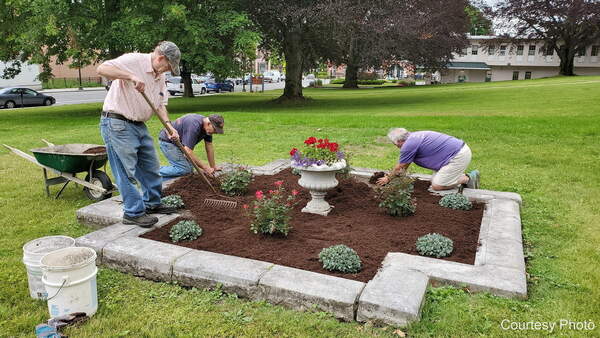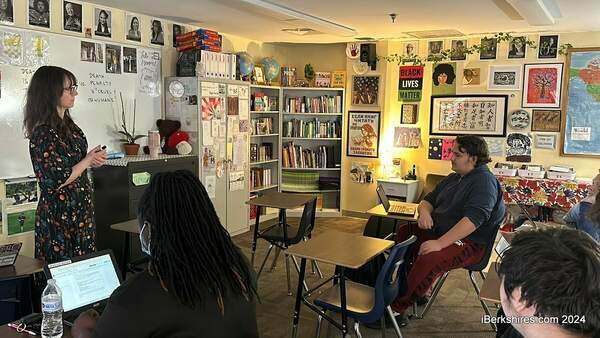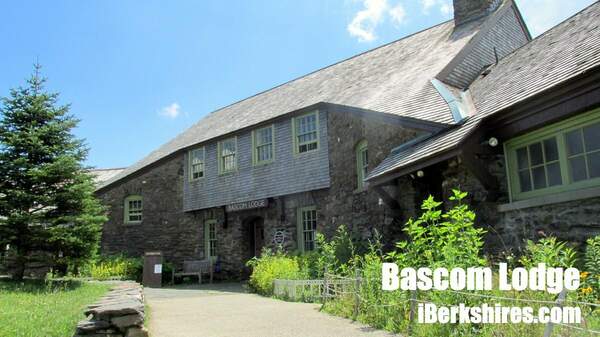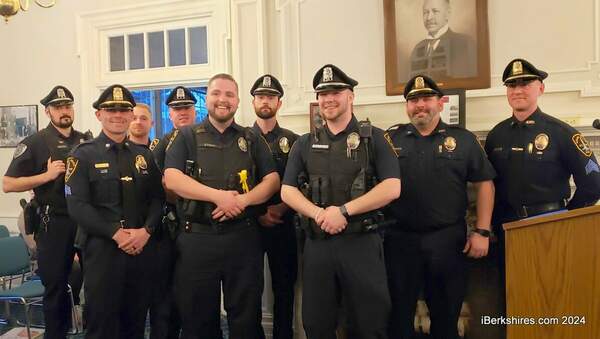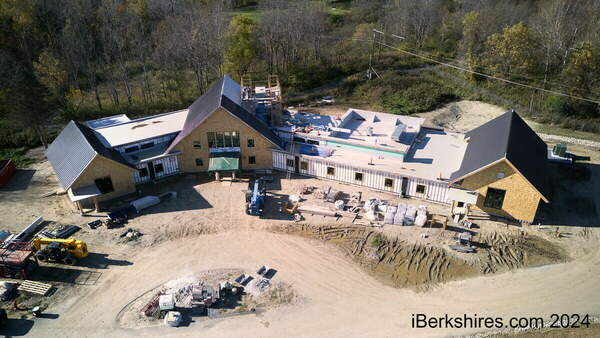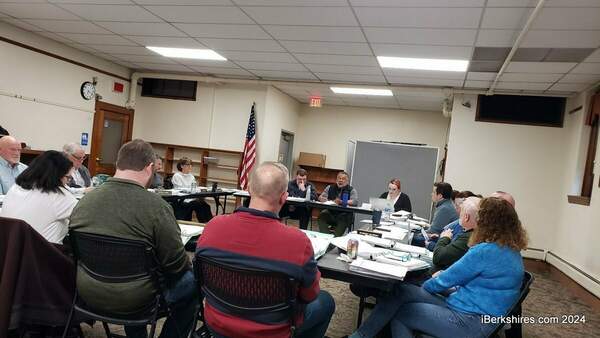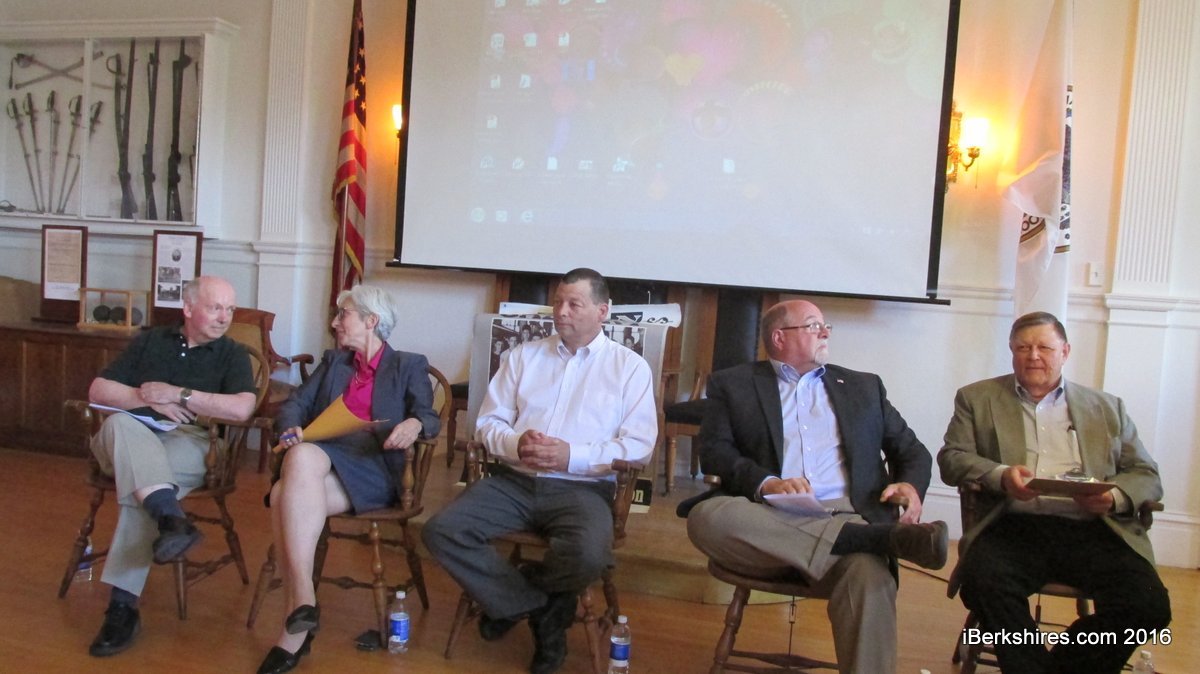
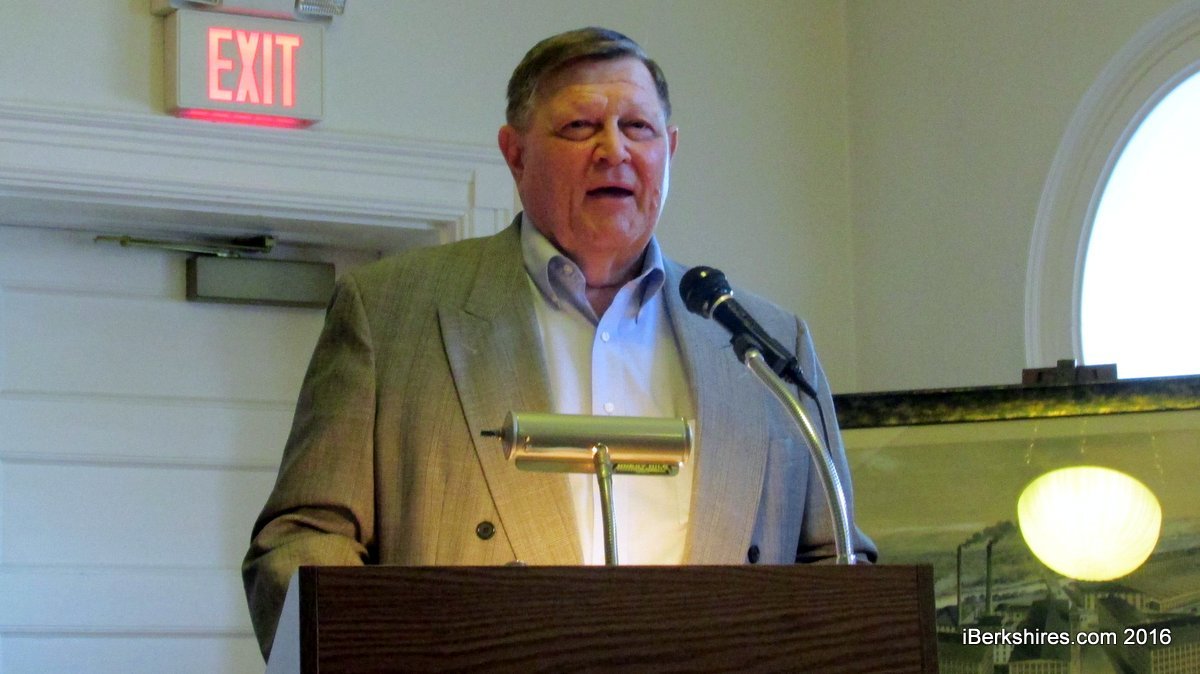
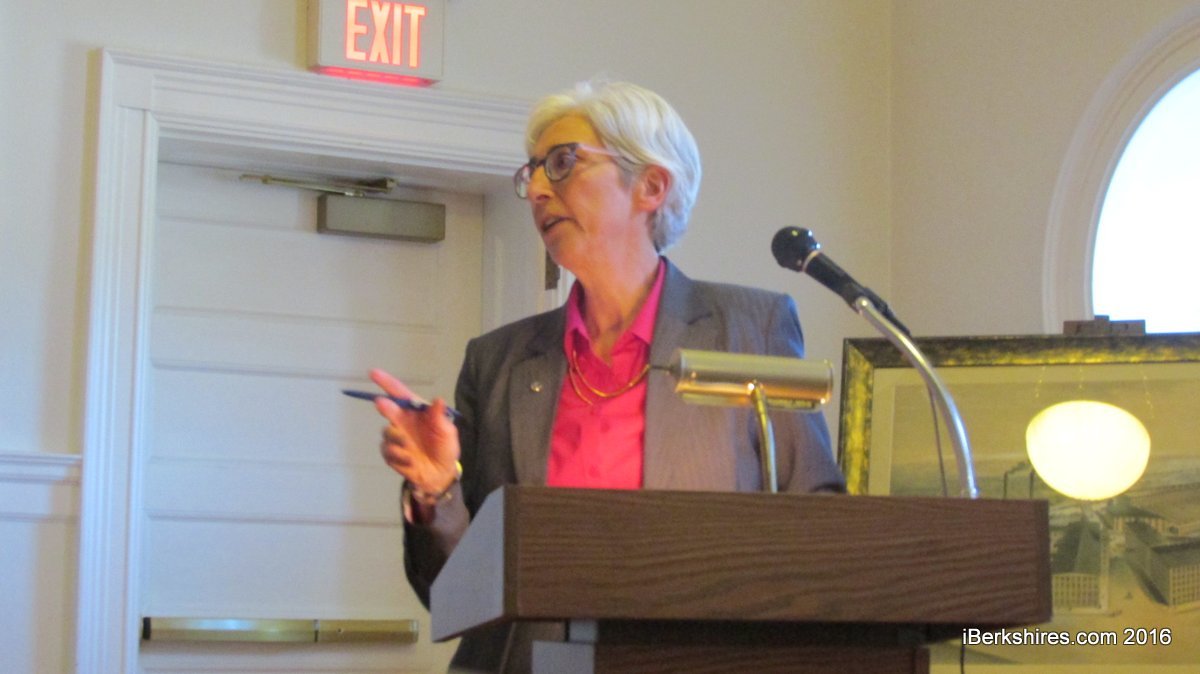
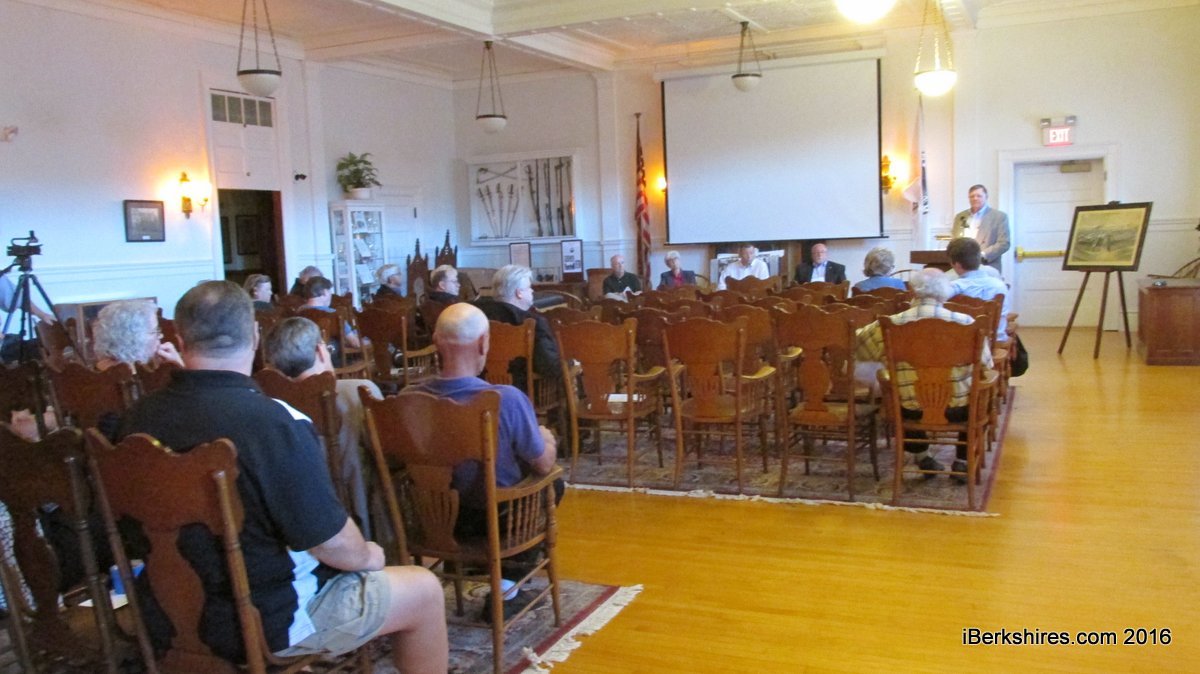
Regionalization, Collaboration Focus of Adams-Anthony Talk

ADAMS, Mass. — A declining population and rising costs are pushing communities together to explore ways to share resources.
"We're going to have to look at how we maintain our way of life and continue the services that we need," said North Adams Mayor Richard Alcombright at last week's Adams-Anthony Center talk on regionalization.
The talk was the lasted by the nonprofit organization, which brings together community and creative leaders to discuss various issues related to the Berkshires at the Adams Free Library. Last week, Alcombright was joined by state Rep. Gailanne Cariddi, Berkshire County Education Task Force member John Hockridge and Adams Selectmen Chairman Richard Blanchard to discuss the challenges and opportunities to regionalizing services.
It was, said moderator Richard Tavelli of Williamstown, a "provocative concept" for some.
Also a spirited one, as Blanchard joked there was a "ghost" hovering in the hall that was pertinent to the conversation: County government.
There was a past selectman who'd avowed "we would regret losing county government," he said. "Now we're finding county government could have stepped in like health inspections, with schools, with anything. ...
"We may be moving out of necessity back to something like that."
County government still exists in a half-dozen eastern counties but was abolished in the late '90s throughout much of the state, including the Berkshires. The state took over most functions, such as the sheriff's departments, courts and land registries.
The speakers pointed to some entities of collaboration — the Northern Berkshire Solid Waste District, Hoosac Water Quality District (North Adams and Williamstown), Tri-Town Health Department (Lee, Lenox and Stockbridge) and the shared services of the North Adams veterans agent in North Berkshire as some examples.
And, of course, six regional school districts. More recently Adams and North Adams partnered to ensure the development of the Berkshire Scenic Railway and the Ashuwillticook Rail Trail extension between the two communities.
At a higher level, the Berkshire Regional Planning Commission provides zoning and transportation planning, as well as collaborative groups on specific issues such as legal support for the defunct Kinder Morgan gas pipeline.
Cariddi pointed to the Councils of Government established in neighboring Franklin and Hampshire counties as possible models. The Franklin Regional Council of Governments,for instance, has centralized building and health inspections and permitting, health service, purchasing, municipal and natural resource planning, emergency preparedness and economic development.
"I talk about a lot of regional things because that's what I have to do on the state level to try bring what I can back here," she said.
Regionalization isn't new, the representative noted, and often is sparked by tight budgets.
"It's universally acknowledged as saving money but there are other advantages ... like enhanced services through economies of scale," said Cariddi. But while talks often start over budgets, they "end with bureaucratic inertia and parochialisms."
Alcombright said any regional discussions have to have a sound foundation on which to build a path to a solution.
"I think we need to understand our municipalities are a business and need to be managed as such ... I think we need to understand our decisions need to be made by policy rather than politics."
Taxpayers will need to take "a leap of faith" into becoming ratepayers, among the pitfalls that any discussion on regionalizing means.
"[Such as] the more parochial needs of individual communities and those may become stumbling blocks and those are the things you have to work through," the mayor said. "As soon as we walk in the door, egos have to stay out of the room."
Any discussions that focus solely on money are non-starters, Alcombright said, but rather collaborations should be about "How they make us more healthy, make us more viable and more sustainable as communities."
Cariddi called for "bold action," and that may be coming in the form of solutions from the Berkshire County Education Task Force. She was able to secure a $100,000 study grant for the group from the state, which is looking at the task force's results as a possible model for moving forward.
The task force was sparked by concerns over the decline in student enrollment and flat or declining revenues that are not only pinching communities but reducing academic opportunities.
"That necessitates looking at regionalizing school districts in the Berkshires," said Hockridge, also a member of the North Adams School Committee. "The primary motivation is enhancing the the schools."
The Berkshires has 17 school districts to educate about 15,000 children — while Springfield as twice that many students in one district.
The county could look at doing one super district, or three or four smaller ones.
But we have the geographic challenges and we don't want the kids on the bus for an hour or two," Hockridge said. "There are lots of things we're looking at ... we're tossing a lot of things around."
Among those are group purchasing, sharing administrative and educational services such as information technology directors or curriculum coordinators.
But Hockridge stressed any solution has "to work for everybody."
"You've got to avoid the pitfall of jumping in the water too quickly ... when the reality is, we have to move carefully," he said.
Tags: adams anthony, collaboration, regionalization,

